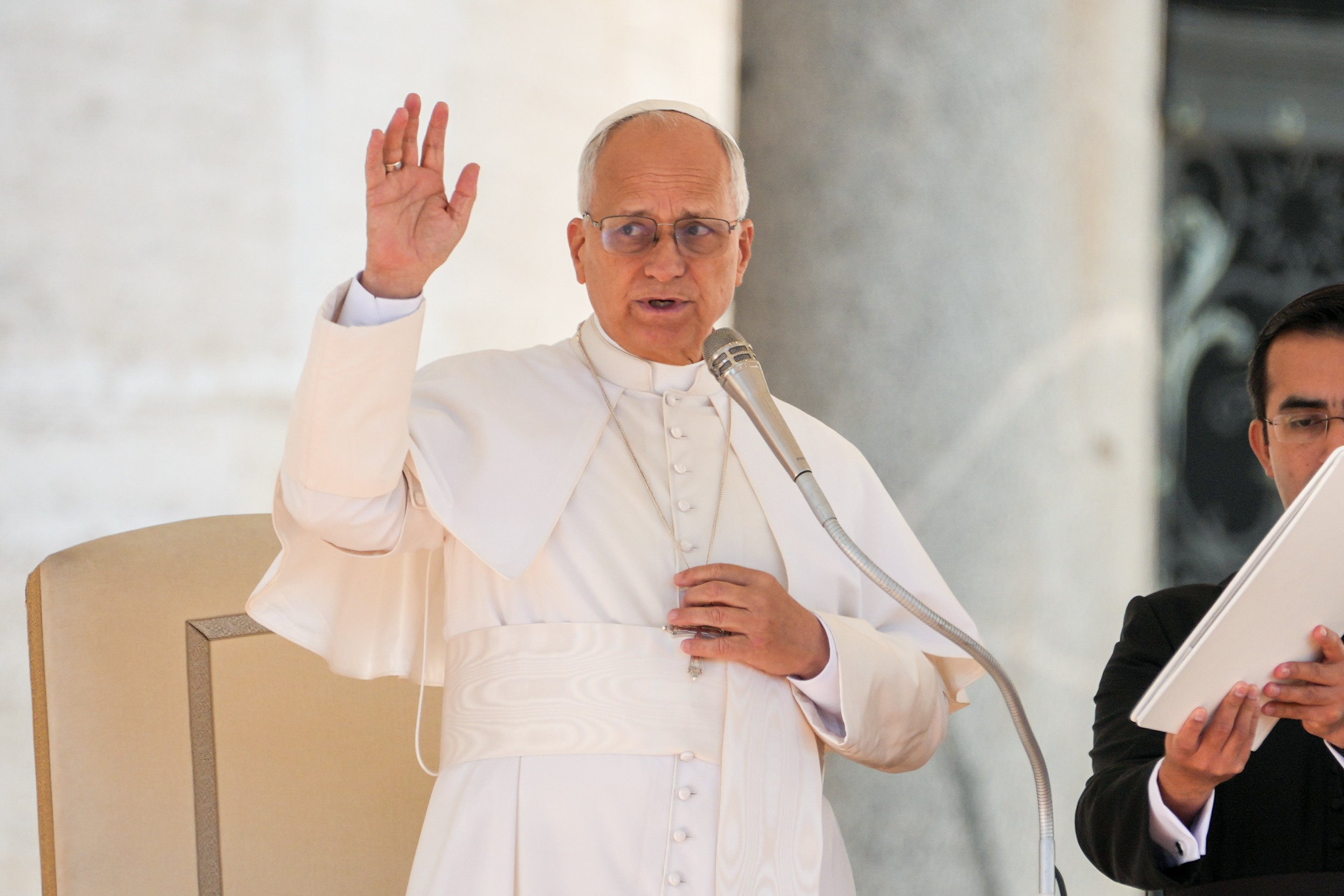August 21, 2018 at 7:27 p.m.
FROM A READING FOR AUG. 19, 21ST SUNDAY IN ORDINARY TIME
‘Be careful, then, how you live, making the most of the time....Do not be foolish, but understand what the will of the Lord is...” — Eph 6:15,17
This week, we conclude our journey through Jesus’ bread of life discourse. Our journey ends with a choice and a decision: We can enter into a covenant or relationship with the Lord, or we can walk away. What is it to be?
The first reading (Joshua 24:1-2,15-18) finds us at a great assembly of the people of Israel in a place called Shechem. Joshua has called everyone together to renew the covenant with God as the people finally come to the Promised Land.
He places before them a choice: to serve God alone or to serve false gods. It has to be one or the other. Joshua makes clear his choice: “As for me and my household, we will serve the Lord.” The people agree and also promise that they will serve the Lord, for He is God.
We can fast-forward millennia to see that, in the Eucharist, the real and living symbol of Jesus, the new covenant, we too face this choice. As the minister says, ‘“The body of Christ,” or, “The blood of Christ,” we respond, “Amen:” that is, “So be it.” This simple word of affirmation is also a word of choice or decision; we are saying, “Yes, Lord, I believe and I choose to follow you.”
Psalm 34 makes yet another appearance as our responsorial psalm. Given our other readings, the focus of the verses chosen for this weekend is about the covenant God has made with us. We give glory and praise to God because of His love and care for us.
This love and care is seen especially when God comes to help in times of adversity or difficulty. The letter to the Ephesians (5:21-32) also speaks about a covenant: the one Christ has with the Church. To illustrate this covenant, the letter uses a beautiful image of the covenant of love that exists between a bride and a groom.
In the Gospel (Jn 6:60-69), we return to the final part of Jesus’ bread of life discourse. We heard last week how the crowd began to quarrel amongst themselves when they grasped the realism of Jesus’ words. Now, it is not just a vague or generic group that is shocked and troubled, but even His disciples. They say, “This saying is hard; who can accept it.”
Once again, it is clear that Jesus’ words about eating His flesh and drinking His blood were understood not in some merely symbolic way, but literally. In fact, the word used in the original language translated as “hard” is “skleros,” which means not so much “hard” as “offensive.”
Jesus then asks, “Does this shock you?” Actually, a better translation would be, “Does this scandalize you?” Many of us may puzzle about the proper meaning and understanding of the real presence of Jesus in the Eucharist (body, blood, soul and divinity), so perhaps this question relates to our struggles, too.
Indeed, our Gospel then informs us that many of the disciples returned to their former way of life and no longer accompanied (literally no longer “walked with”) Jesus.
Jesus’ next question, then, is also addressed to us: “Do you also want to leave?” Hopefully, St. Peter’s answer is also ours. Notice that it is not just a yes-or-no reply! In fact, he says three things. First, Jesus’ question is, in a way, a non-question: How can we leave, as Jesus is “the way, the truth and the life;” where else or rather to whom else would we go?
Second, Jesus has the words of eternal life. Who would walk away from this? Third, St. Peter says, “We have come to believe and are convinced that you are the holy one of God.” In other words, we still want to walk with Jesus and make that journey of faith, because we know who He is. It may take us some time to “come to believe” and our journey may take many twists and turns, but our destination is clear.
We might add that we are also called to bring others to journey toward faith in Jesus and to walk with them on this journey. In this last sense, we have come to realize that that the Eucharist is at the very heart of evangelization. The Eucharist feeds us and gives us the strength to be true disciples of the Lord, but also the courage and even the motivation to share the gift that we have received with others.
As Robert Rivers, in his book “From Maintenance to Mission: Evangelization and the Revitalization of the Parish,” writes: “Evangelization is not an add-on dimension to the Eucharist; rather it is in and of itself an evangelizing experience….We eat and drink the body and blood of Christ in order to become the body of Christ to the world.”
- Dig deep and work patiently to keep church on solid foundation, pope says
- Portland archbishop on ICE: Human dignity comes from God, not government
- Christian hope shows the earth can resemble heaven, pope says
- Washington Roundup: Election shifts; Venezuela vote; transgender passports, and more
- Novel highlights power of art and music as a salve to troubled humanity
- Supreme Court sides with Trump administration to temporarily block full funding for SNAP
- Former diocesan fundraising director indicted on wire fraud for alleged 6-figure theft
- Love is key to church’s mental health ministry, says bishop who lost family to suicide
- Caring for creation is part of peacemaking, pope tells COP30
- Security for Syria’s religious minorities is disastrous, say religious freedom advocates








Comments:
You must login to comment.